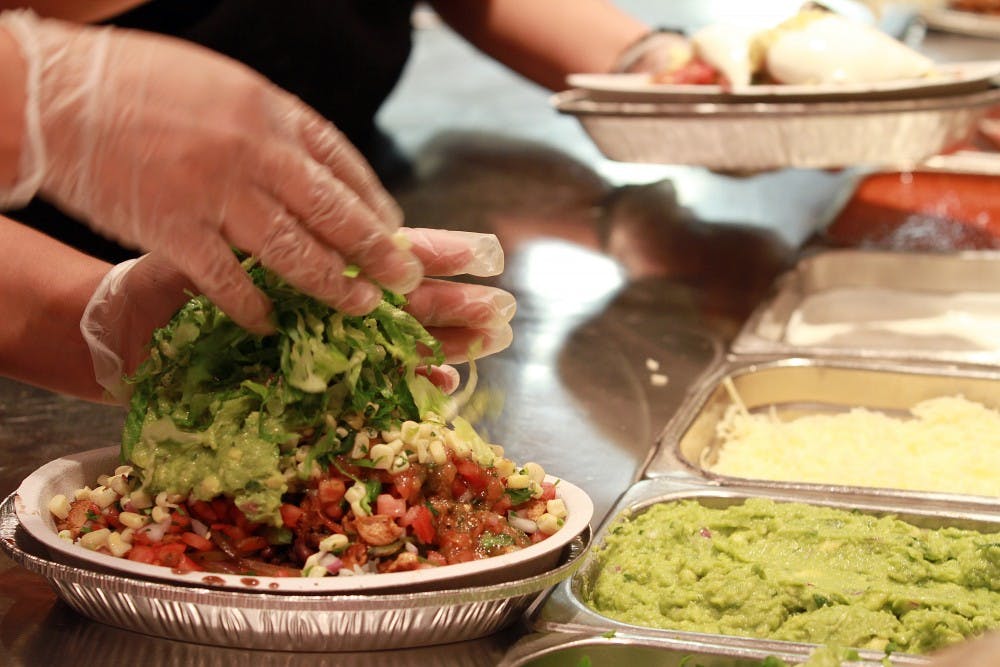As one of the central survival building blocks, nothing is more influential on your daily health and well-being than the food you eat. A studying herbalist once told me that if you ever want to address a medical concern, you must first start with checking how your diet is impacting you.
Food is medicine.
As much as this is the case, the food we eat can also be incredibly destructive. So many popular food choices in our society, including cooked meat, dairy, sugar-packed and processed foods, can be not only completely devoid of nutritious value, but also actually harmful to our bodies due to toxins or food allergies. But what is probably of most concern to us is how food affects our minds.
Here in Tempe, we don’t have what you could call clean air. In fact, most days I walk down the street, I am hit with the scent of something putrid and unidentifiable, some kind of mix between sewage, gas fumes and cooking asphalt.
This is just one way to understand the state of our natural environment. It is not very clean and, in turn, it is not very healthy. Unfortunately in this case, we are fully and inextricably connected to the natural environment. When the health of the air, water, or food we eat is hindered, our health is as well.
According to Leslie Kenton, health and beauty author, “Food sensitivities were once uncommon. Now they’ve become so widespread that nutritionally-trained doctors estimate between 70 and 90 percent of us experience symptoms associated with food reactions, although few of us realize what is taking place.”
She went on to explain this is largely due to modern diets high in processed foods and low in nutrient intake, as well as, the poor state of our natural environment.
Besides our particular situation at this time, human consciousness has always been closely tied to the food we eat. Indeed, the food we eat becomes us. It gives us the material that maintains our body.
Well-acclaimed humanitarian, Sadhguru, explains this by saying, “One life transforms itself into another – that is what eating means. It is not just digestion – it is one life fusing into another.”
In fact, there is theory that suggests humans may have developed from apes, in large part, from dietary changes. Not to mention the old maxim, "you are what you eat."
Nowadays, the Mental Health Foundation concludes from recent studies, “food plays an important contributing role in the development, management and prevention of specific mental health problems such as depression, schizophrenia, attention deficit hyperactivity disorder and Alzheimer’s disease.”
As our world reaches many ominous tipping points, following climatic changes, including species extinction, melting ice caps, desertification, etc. many people are, you could say, waking up.
Now is the time more than ever for us to all get our acts together. In order to do this, we need to start with elevating ourselves and clearing our minds. For some, this may entail eating raw vegan.
According to my ASU yoga teacher and Mesa Community College professor of health education, Jenny Swenson, ultimately, eating healthy and feeling good is, “a matter of knowing yourself.”
Starting with dietary changes cannot only benefit your internal system and your inner world, but also the outer world. Interacting peacefully within and with the world around you is the first step to fostering a more peaceful planet.
Eating good food can extend beyond your health to the health of the planet if you choose to grow a garden or make your own specialities, like kombucha, sauerkraut and kefir. If I have learned anything from my Sustainability Food and Farms class, it is that the future of foods will be to heal the Earth through sustainable agroforests and integrated farms.
Reach the columnist at ralydfor@asu.edu or follow @ralydford on Twitter.
Editor’s note: The opinions presented in this column are the author’s and do not imply any endorsement from The State Press or its editors.
Want to join the conversation? Send an email to opiniondesk.statepress@gmail.com. Keep letters under 300 words and be sure to include your university affiliation. Anonymity will not be granted.
Like The State Press on Facebook and follow @statepress on Twitter.




